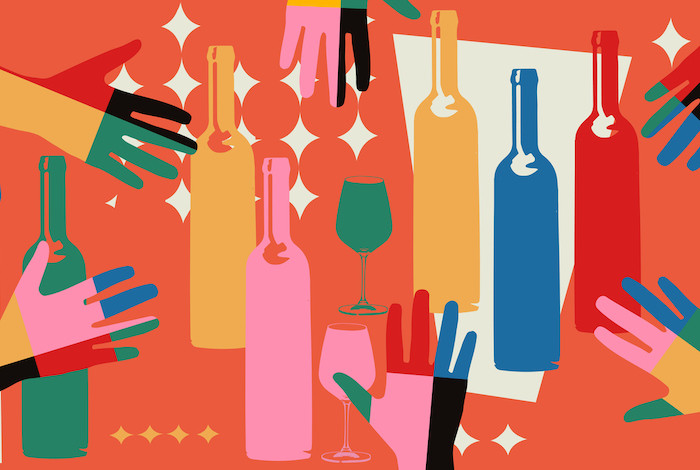
Carly Foxwell, founder of consultancy Fox in the Well, sets her vision of how brands can work better with bars.
From where I sit, on the brand side of the drinks industry, the relationship between brands and bars is definitely shifting. Operators are juggling a lot, and engaging with brands is just one of many things on their plate.
At the same time, brands of all sizes are tightening budgets, especially around sales teams. That creates real challenges when it comes to building strong, meaningful partnerships in the on-trade.
Often, there just aren’t enough BDMs, and those who are out there might not have the training or strategy they need to make a real impact.
To get the most out of brand-bar partnerships, I really believe in hospitality-first thinking. It’s the foundation for success. I spoke about this recently at BCB London with Liam Davy from Hawksmoor, during our panel on “The Triple Win”—how to create partnerships that work for the bar, the brand, and most importantly, the guest.
At the end of the day, we’re all working toward the same goal: giving people great reasons to visit venues and spend money on drinks they love. That’s how we build loyalty and keep the on-trade thriving.
Here are a few principles and practical tips (mainly for brand owners and that can help improve what’s often a bit of a strained relationship:
Strong brand-bar partnerships start with empathy. That means taking the time to understand each other’s priorities, pressures, and ways of working. When both sides approach the relationship with respect and curiosity, it sets the tone for something more collaborative and long-lasting.
Equally important is keeping the guest at the heart of everything. Brands need to align their sales and brand strategies before reaching out to venues, with a clear idea of who they’re targeting and why. When both parties are focused on delivering value to the same guest, the partnership becomes much more meaningful.
Remember that operators know their guests better than anyone. Brands should come in with questions, not assumptions. Listening first helps build trust and leads to better, more relevant proposals.
Finally, strong partnerships don’t happen in a single meeting—they’re built over time through a clear process. I break it down into three key stages:
• The Approach
• The Proposal
• Account Management.
Each stage plays a role in shaping the relationship, and while both sides contribute, it’s usually the brand’s job to lead with structure, clarity, and consistency.
1. The Approach: Before the Pitch
Brands need to do their homework—segment venues properly and visit them before making contact. Get a feel for the space, the clientele, and if possible, chat with the team. Never turnup to a meeting without having been there first.
The first conversation shouldn’t be a pitch. It should be about asking questions, understanding the venue’s goals, and figuring out how the brand can genuinely add value. No one wants a proposal from a brand that hasn’t taken the time to understand their business. Brands should come in with a thoughtful hypothesis: how their proposition and venue support plans enhance the guest experience and support the venue’s objectives more effectively than the competition.
2. The Proposal: Tailored Value
Proposals need to be personal. Generic activations and support packages just don’t cut it. Offers should reflect what the venue actually needs. If a brand can’t deliver that, it’s usually a sign that the commercial strategy needs a rethink.
Clarity is key here—be upfront about outcomes, expectations, and responsibilities. If a brand is paying for visibility, it’s fair to expect a menu mention, for example. The proposal should reflect mutual wins, built on the understanding developed earlier.
3. Account Management: Nurturing the Relationship
This is where things often fall apart. Overpromising leads to disappointment. Be realistic from the start, and if things change, talk about it.
Getting the right level of account management matters. Brands should set expectations early so venues don’t feel neglected—or overwhelmed. And brand reps should genuinely care about hospitality, including knowing how to behave in-venue. Being a good customer goes a long way.
And what could buyers do to improve the process?
Brands should understand that you are hugely stretched, but even a small amount of your time spent answering brand questions will pay back tenfold. Deliver on promises – if a cocktail listing is agreed, put in on the menu. If a brand is supporting an event, give the visibility agreed. And if things have changed and sticking to the agreement is no longer possible, be honest and discuss alternatives.
Just say no! It’s the job of the brand to ask for a listing but if the fit isn’t there on the brand, product or the proposal, be prepared to say no and if both parties have dedicated time to the process, tell us why.
If there’s one thing to take away, it’s that great brand-bar partnerships aren’t built on flashy pitches or generic proposals—they’re built on empathy, curiosity, and a shared commitment to the guest experience. Brands need to do their homework, and venues need to be open to the conversation. It’s not rocket science, but it does require effort on both sides.
Founded in 2019, Fox in the Well is a commercial consultancy helping the drinks brands of the future scale with purpose and precision. Carly Foxwell has recently been joined by Calum McFarlane and Ali Dedianko.


